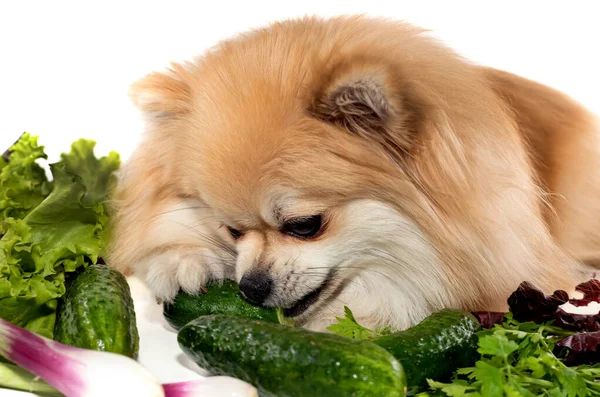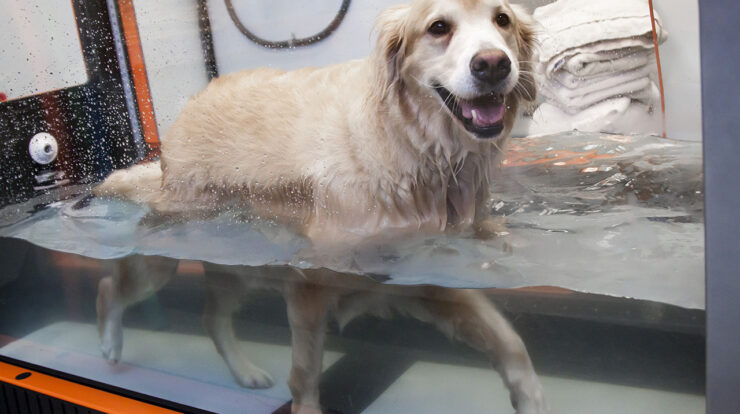Dry Heaving in Puppies: What Is It?
Dry heaving in pups is the process of gagging or retching without actually expelling any contents. Ranging from little to major, it’s a worrisome tendency that can point to several underlying problems. Ensuring your puppy’s health and well-being depends on first identifying the symptoms and knowing the reasons.
Typical Reasons for Dry Heaving in Puppies
Puppies might experience dry heaving for a number of reasons. Amongst these are:
- Foreign objects: Puppies are inquisitive and could swallow something that could block their throat.
- Respiratory infections: Conditions such as kennel cough might result in irritation causing dry heaving.
- Gastrointestinal problems: Conditions like bloating or gastritis can cause retching.
- Allergies: Gagging reactions could be caused by environmental or dietary allergies.
Finding the precise source need very close examination and sometimes veterinary advice.
Identifying Symptoms Accompanying Dry Heaving
Apart from the dry heaving itself, puppies could show other signs including:
- Lethargy: A clear drop in energy level.
- Loss of appetite: Unwillingness to consume food or drink.
- Coughing: Ongoing coughing spells.
- Swollen belly: Suggestive of bloating or other digestive problems.
Keeping an eye on these signs can help one to better understand the degree of the disease.
When to Call the Vet
Although sometimes dry heaving may not be cause for concern, regular occurrences call for expert assessment. If:
- Dry heaving continues: Several occurrences in a brief period.
- Along with additional symptoms: Vomiting, diarrhea, or behavioral abnormalities, for example.
- Physical suffering: Indications of pain, discomfort, or respiratory problems.
Early action guarantees your puppy’s recuperation and helps to avoid possible problems.
Preventive Actions to Lower Dry Heaving Occurrences
Preventing dry heave calls for environmental management and preventive care:
- Monitor playtime to make sure puppies aren’t chewing or swallowing dangerous items.
- Dietary issues: Monitor for allergic responses and slowly add new foods.
- Routine veterinary appointments can find early indicators of health problems.
- Staying current with vaccines helps to prevent diseases including kennel cough.
Applying these policies can greatly lower the likelihood of dry heaving attacks.
Supportive Care and Home Remedies
Some home treatments could help mild dry heaving:
- Make sure your dog can get clean water.
- Rest: Give a peaceful and pleasant area for recuperation.
- Dietary changes: Provide bland dishes like boiling chicken and rice momentarily.
- Watch: Pay particular attention to dry heaving symptoms and frequency.
When required, nonetheless, these treatments are not replacements for skilled veterinarian care.
Knowing the Function of Diet in Dry Heaving Diet has a major influence on your puppy’s digestive health:
Select age- and breed-appropriate, high-quality puppy food.
Avoiding overfeeding helps to prevent bloating.
To control digestion, keep regular feeding times.
Table leftovers should be avoided since human food could disturb a puppy’s tummy and cause dry heaving.
A balanced diet helps to reduce digestive problems and promotes general health.
The Effect of Environmental Elements
Environmental factors can affect your dog’s health:
Allergens: Dust, pollen, and mold can cause allergic responses.
Toxins: Some plants and household cleansers are dangerous if consumed.
Changes in surroundings or routine can trigger anxiety, which might result in dry heaving.
Extreme temperatures: Cold and heat can impact digestive and respiratory systems.
Your puppy’s well-being depends on your efforts to build a safe and stable surroundings.
Regular exercise’s significance
Exercise helps to maintain a healthy digestive system:
- Regular walks help to lower stress and encourage consistent bowel motions.
- Playtime: Keeps the puppy from being bored by engaging him physically and mentally, hence preventing boredom.
- Avoid overexertion: Especially after meals, to prevent problems like bloat.
- Regular exercise routines support general health.
Balanced activity levels help to lower the chance of dry heaving and maintain digestive health.
Tracking Behavioral Changes
Changes in behavior can indicate hidden medical problems:
- Growing restlessness could suggest pain or discomfort.
- Withdrawal: Not engaging could indicate disease.
- Aggression: Unusual aggressiveness could result from bodily suffering.
- Vocalizations: Too much whimpering or barking could indicate discomfort.
Being in sync with your puppy’s behavior helps to identify health issues early on.
Parasites’ Contribution to Dry Heaving
Parasitic diseases can cause digestive problems:
- Common in pups, roundworms can induce vomiting and dry heaving.
- Hookworms: Cause intestinal problems and anemia.
- A protozoan parasite, giardia causes nausea and diarrhea.
- Regular deworming programs are essential.
Ask your doctor for suitable treatment and preventative strategies for parasites.
Knowing breed-specific hazards
Some breeds could be predisposed to illnesses that result in dry heaving:
- Brachycephalic breeds: Such as Bulldogs and Pugs, prone to respiratory problems.
- Large breeds: Like Great Danes, more prone to bloat.
- Genetic elements: Certain breeds have genetic digestive sensitivity.
Awareness of breed-specific dangers allows for targeted preventative therapy.
Dry Heaving and Kennel Cough: The Link
A contagious respiratory illness, kennel cough
Symptoms: Consist of a constant cough, dry heaving, and gagging.
Spreads in areas with significant dog populations, such as kennels.
Avoiding contact with diseased pets and vaccination help to prevent.
Treatment: Sometimes calls for antibiotics and usually calls for rest.
Managing kennel cough efficiently depends on early detection and isolation.
The Importance of Hydration
Digestion depends on sufficient water consumption.
Prevents constipation: Helps with smooth bowel motions.
Controls temperature: Particularly relevant in hot areas.
Aids organ function: Including liver and kidneys.
Indications of dehydration include dry gums, weariness, and sunken eyes.
Make sure your dog always has access to fresh, clean water.
Identifying Urgent Circumstances
Some indicators call for quick veterinary care:
Especially if other signs are present, persistent dry heaving calls for immediate veterinary attention.
Swollen belly: Might suggest bloat, a potentially fatal disease.
Breathing problems: Indicates possible airway blockage.
Unresponsiveness is a vital symptom that calls for quick treatment.
Prompt action can be life-saving in crises.
How Vaccines Help to Prevent Disease
Vaccines guard against several ailments:
Parvovirus: A major gastrointestinal disease.
Distemper: Impacts digestive and respiratory systems.
Bordetella: The bacterium causing kennel cough.
Maintaining immunity depends on regular scheduling.
Talk to your veterinarian to set a suitable immunization schedule.
Dental health’s significance
Oral health affects general well-being:
Dental infections: Could cause pain and more general problems.
Difficulties chewing could lead to dry heaving or vomiting.
Regular brushing helps to stop plaque accumulation.
Dental check-ups: Early identification of possible issues.
Your puppy’s health plan places great importance on keeping oral hygiene.
Knowing Puppies’ Digestive System
Puppies have delicate digestive systems:
Changing diets: Should be done slowly to prevent disturbance.
Good diets help development and intestinal health.
Some human diets are bad for puppies.
Examining stools: Changes could point to gastrointestinal problems.
Good eating and care help to sustain a healthy digestive system.
Stress’s Effect on Digestive Health
Puppies can show stress physiologically as follows:
- Travel: New places could make one anxious.
- Separation: Owners’ absence can cause stress-related disorders.
- Changes in routine: Disturbances can interfere with digestion and eating.
- Socializing: Slowly exposing oneself helps to lower nervousness.
Preventing linked health problems depends on stress management.
The Importance of Professional Training
Training helps to general health:
- Reduces anxiety: By use of organized routines and orders.
- Teaching orders like “leave it” helps to prevent dangerous chewing.
- Improves communication: Knowing signals could help you to be aware of health problems.
- A well-trained dog is more in sync with its owner.
Training helps to improve physical as well as behavioral wellness.
Final thoughts
Puppies dry heaving is a sign that should always be taken seriously. Although it can happen from small problems, it might also suggest major health conditions calling for prompt care. Understanding the possible reasons and using preventative strategies will help you to guarantee your dog stays happy and healthy. Preventing and treating dry heave depend on regular veterinary check-ups, a balanced diet, appropriate training, and a safe environment. Should you see ongoing or serious signs, always ask your doctor to give your puppy the finest treatment.





